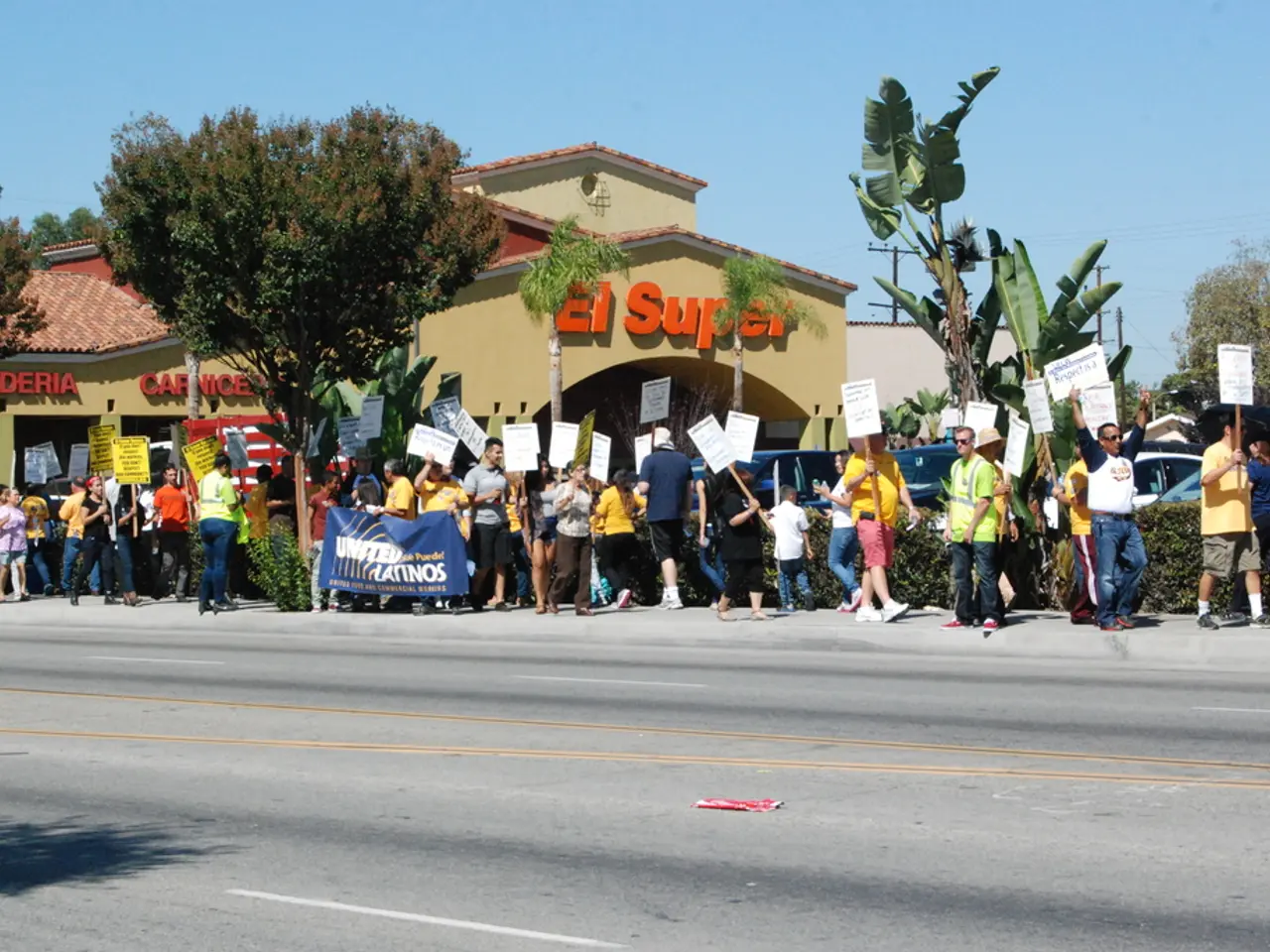SPD faces potential drop below 10% following 100-day mark
The political outlook for Germany's Social Democratic Party (SPD) following its first 100 days in government with the Union (CDU/CSU) is facing significant challenges, according to political scientist Wolfgang Schroeder.
After a disappointing performance in the 2025 German federal election, where the SPD dropped over nine percentage points to 16.4%, the party found itself in third place behind the CDU/CSU and the far-right AfD. This poor showing was a reflection of voter dissatisfaction and the challenges the SPD faced while in the former "Traffic light coalition" (SPD, Greens, FDP), including internal coalition conflicts and external crises such as the Ukraine war and an economic recession.
Despite not directly detailing his specific analysis of the SPD's outlook, Schroeder's broader observations suggest a fraught political future for the party. The SPD must now navigate coalition dynamics with the Union under Chancellor Friedrich Merz, who is known for his confrontational style.
The SPD's future influence depends on resolving internal conflicts and regaining voter confidence amid an increasingly polarized Bundestag. Schroeder suggests that the party needs to re-establish its distinct identity from the Union to save itself.
Schroeder predicts a potential decline for the SPD, with the risk of the party falling below ten percent not being averted. He emphasizes the importance of achieving symmetry in the upcoming social reforms and cuts, and warns against the impression of burdening the weak and relieving the strong.
Schroeder, a former member of the SPD's values commission, encourages the party to leverage this opportunity to strengthen its position. However, he also notes the difficulty the SPD faces in being noticeable and reaching compromises.
Despite these challenges, Schroeder sees a potential opportunity for the SPD. If a new reform policy is implemented, it could lead to a better distribution of burdens between party leaders, such as Lars Klingbeil and potential reform advocate Barbara Bas.
In conclusion, the SPD's current political outlook post-100 days in government with the Union is characterized by diminished electoral support, intra-party division, and the need to redefine its role within a CDU/CSU-led coalition. The party must navigate these challenges carefully to regain its footing and maintain its relevance in German politics.
Read also:
- Weekly happenings in the German Federal Parliament (Bundestag)
- Southwest region's most popular posts, accompanied by an inquiry:
- Discussion between Putin and Trump in Alaska could potentially overshadow Ukraine's concerns
- Tinubu's administration allegedly causing issues within every political party as Peter Obi's name surfaces - Obidient Movement asserts







